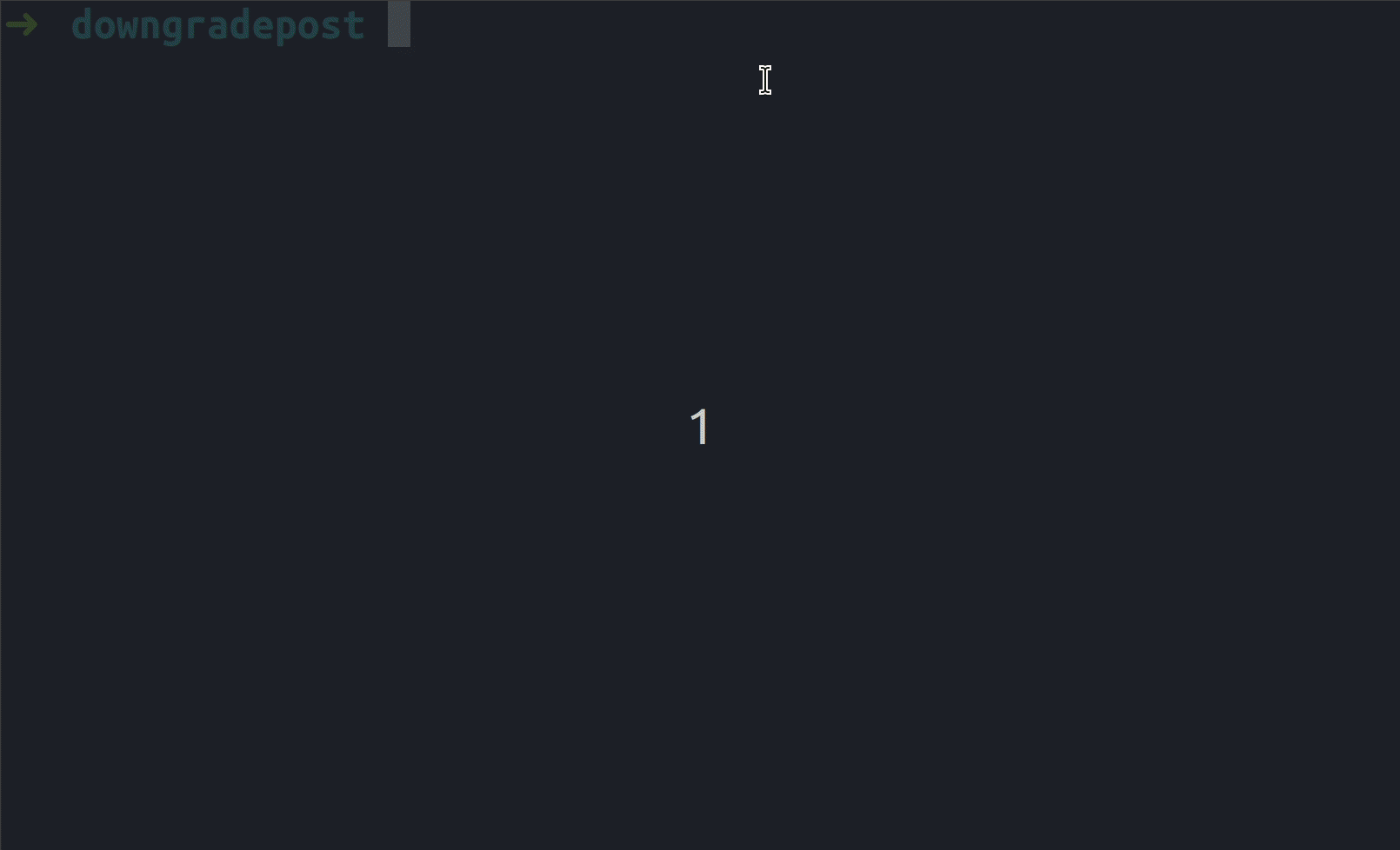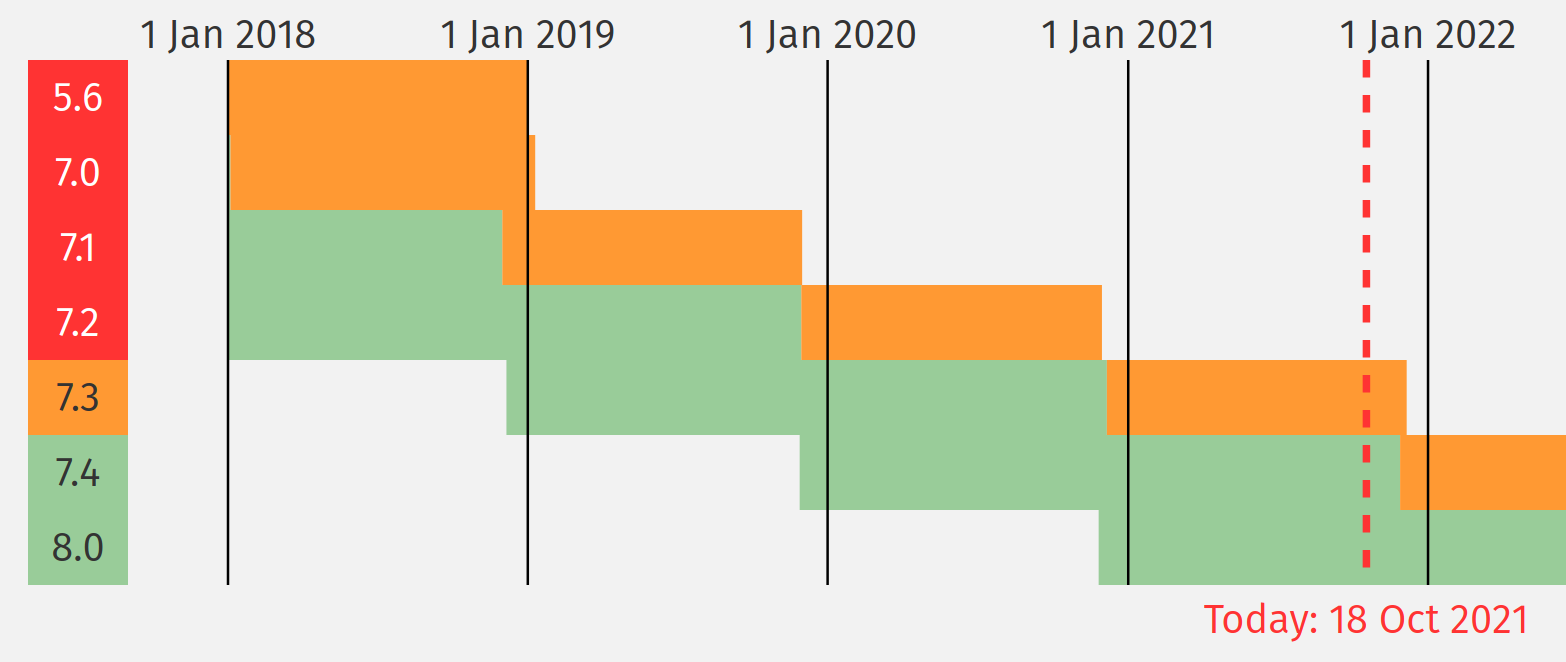How all Frameworks can Bump to PHP 8.1 and You can Keep Using Older PHP
Since Rector 0.12 a new RectorConfig is available with simpler and easier to use config methods.
Imagine hypothetical situation: new major Symfony and Laravel are released in December 2021. We'll already have PHP 8.1 out by that time. There have been a lot of positive vibes about new PHP versions in the last year, so let's say the frameworks will take a brave leap forward.
Symfony 6 and Laravel 9 will require PHP 8.1 as a minimal version in their composer.json.
How would you react to such a move? What if you could keep using your current PHP version while using Symfony 6 or Laravel 9?
Developers: "Please, Don't Force us to Upgrade PHP"
The day has finally come. The new Symfony and Laravel 9 are released. We want to enjoy the latest features, so we bump our composer.json:
{
"require": {
"php": "8.0",
- "symfony/console": "^5.3"
+ "symfony/console": "^6.0"
}
}
And run composer to update dependencies:
composer update
What happens?
"Could not install "symfony/console" packages because it requires PHP 8.1.
It does not meet your constraint of PHP 8.0."
This doesn't look good. Bumping to PHP 8.1 since day one might be a bit extreme, but this situation happens in every PHP version bump. No matter how small it is. Even if you bump from PHP 7.4 to 8.0:

There are always thousands of packages and projects that can't support the new PHP version you've decided to use.
Maintainers: "We need new PHP Features"
On the other hand, there is no point in maintaining PHP 7.1, 7.2, 7.3, and 7.4. Most of these do not have security updates:

But most importantly, if we support the old PHP version, we can say goodbye to features like:
- typed properties
- promoted properties
match()- enums
#[attributes]- union types
- intersection types
Every package maintainer wants these features in its code. That's why we want to bump to PHP 8.1 in private projects as soon as possible.
Developers versus Maintainers
The project maintainers want to bump to PHP 8.1 to enjoy the latest features. On the contrary, developers who use packages want support for their PHP version, so they're not forced to upgrade PHP.
 Two sides against each other. Humans versus machines.
Two sides against each other. Humans versus machines.
Which of them is evil, and which of them is good? It depends on what side of the barricade do you stand on.
Is Peace Possible?
Disruptive evolution starts with an insane question.
What if we could move from one place to another at a speed of 100 km/h for just a few dollars per hour? Now we have trains, metro, and public transport system and consider such question stupid.
"What if you could keep using your current PHP version
while using Symfony 6 or Laravel 9?"
To start conflict resolution, we should look not at the differences but at shared goals. What do both camps want?
- fun to code
- 0 maintenance

We can achieve both of these if we add one step to the release workflow.
Introducing Release Downgrades
Let's say Symfony 6 or Laravel 9 is released with a minimum of PHP 8.1. How can we change the release process so, in the end, even developers with PHP 8.0 can use them?
Typical release of new tag from maintainer to developer downloading the package has 5-step lifecycle:
- tag locally
- push tag to the remote repository
- let remote repository push the tag to Packagist via git hook
- let user require a new version in
composer.json - find the tag in Packagist and download the zip from GitHub
When we require symfony/console:6.0.0 in our code, we get the same git hash version in /vendor.
PHP-version Tailored Releases
The release process usually runs on GitHub, where also run GitHub Actions. That's where we can add step that releases different PHP versions of the same code:
php --version
# php 8.1
composer require symfony/console 6.0
Successfully installed 👍
php --version
# php 8.0
composer require symfony/console 6.0
Successfully installed 👍
Symfony 6.0 requires at least PHP 8.1. How is it possible we installed it on PHP 8? If we look closer, we'll see these are 2 different tags packages:
- Symfony 6.0.0.81 for PHP 8.1
- Symfony 6.0.0.80 for PHP 8.0
The last 2 numbers in the tag stand for the PHP version of the code.
The goal is to have the same features in both projects that use different PHP versions. We do 👍
Downgrade in GitHub Action
Where is the trick here? The PHP 8.1 release is a release as we know it; instead of 6.0.0, we tag it 6.0.0.81.
The PHP 8.0 release has one extra step - downgrade code to PHP 8.0
* tag locally
+* downgrade to PHP 8.0
* push tag to the remote repository
* let remote repository push the tag to Packagist via git hook
* let user require a new version in `composer.json.
* find the tag in Packagist and download the zip from GitHub
We create a rector-downgrade.php config with downgrade set:
use Rector\Set\ValueObject\DowngradeLevelSetList;
use Rector\Config\RectorConfig;
return function (RectorConfig $rectorConfig): void {
$rectorConfig->import(DowngradeLevelSetList::DOWN_TO_PHP_80);
};
Run Rector on the source code with this config:
vendor/bin/rector process /src --config rector-downgrade.php
After Rector finishes, the code in /src will have PHP 8.0 syntax. The release workflow will push it and tag it under 6.0.0.80.
This way, we can keep using our current PHP version, and maintainers can bump to the latest PHP ever.
Happy coding!
Check September issue of PHP[architekt], where you learn more.